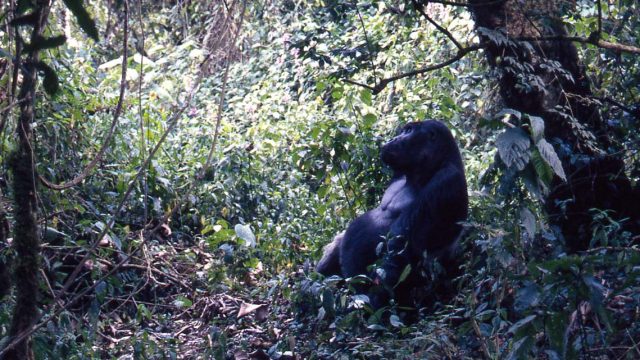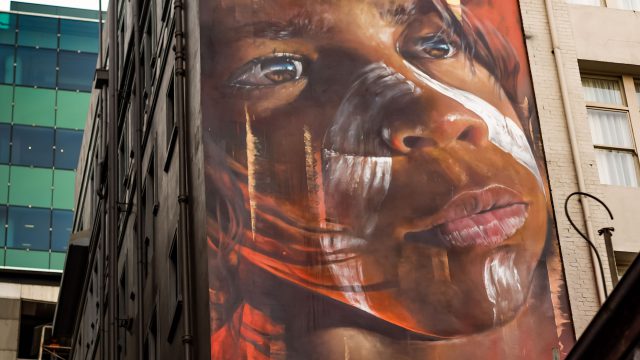Kat and I have worked, lived, and travelled the world for over 35 years, including leading tour groups to some of the most difficult destinations, so you would expect we have learned a few things about travelling well and how to maximise experiences while travelling. So, after a lot of thought, we have compiled this list of our best travel tips to share with you.
Of course, there have been a few mistakes, mishaps, and unplanned adventures along the way. But, with a little planning and learning from other’s mistakes (ours) we hope this article will help you to avoid those annoying travel mishaps and give some ideas on how to travel well.
Should I Get Travel Insurance?
Our advice – definitely you should. We wouldn’t contemplate travelling without it. A lot of people think travel insurance is only necessary when travelling off the beaten track. But illness and accident can happen any time, any place. In 2018 Kat and I decided to have a quick getaway for 5 days in Thailand at a luxury villa on Koh Samui. On day 4 I developed extreme abdominal pain and was very ill. I was taken to the hospital by ambulance and stayed overnight in the hospital and had multiple scans and tests done before being released, having been diagnosed with a gallstone. It was very scary at the time, but the whole experience was made much easier because we had travel insurance. They were very helpful when we contacted them and smoothed the path at every step with great advice. The best part is they reimbursed us for every cost we incurred without any fuss.
We recommend WORLD NOMADS TRAVEL INSURANCE
Read the fine print.
Whether it’s travel insurance, your tour itineraries, flight tickets (especially baggage allowances), car rental, or whatever you book or pay for in advance for your travels, make sure you know what is included and what is excluded. It could save you a lot of time and aggravation. Keep a copy and highlight the bits that are the most important.
Your passport and visas are the most important documents for travel. Make sure you have all of your travel documents in order.
Making sure your passport and visas are in order should be the first step in travel preparation. Don’t just assume everything is correct, check and double-check. Make sure your passport is not expiring soon, if it is getting to less than a year before expiry, start making plans to get it renewed. I applied for renewal 5 months before my Australian was due to expire but I was intending to travel 4 months out, thinking I had plenty of time. In Australia, they cut the cover page off your old passport so it renders it cancelled while you wait, so you can’t travel until you have the new one. After 11 weeks went by and hearing nothing I called. The department hadn’t even started processing my new passport, despite the supposed 6 to 8 weeks processing time. I told them my travel plans had changed and was travelling in a week’s time when in fact it was 3 weeks out. The person I spoke to escalated it to urgent and assured me it would be ready the following week, which it was. Somehow, they managed to get it processed in less than a week. Even though I thought 4 months was plenty of time, it wasn’t. And it’s pretty stressful hearing nothing for weeks while you have no passport.
Make sure you have the correct visa information for your nationality. Visa requirements can change at any time so don’t assume you know the current rules. We planned snorkelling and diving trip to Papua New Guinea for Kat’s birthday and had seen in a guidebook that Australian Passport holders didn’t require a visa. When we arrived at the airport in Brisbane for our morning flight to Port Moresby we were told that the rules had changed several months prior and Australians now had to get a visa before departure. After some frantic phone calls, we were able to get visas arranged from the Brisbane Consulate on the same day, so we rushed off to the Consulate where they processed the visa for us. Thankfully the airline was able to change our flights to the following day at no extra cost (Thanks Air Niugini), but we did have to stay overnight in Brisbane and lost a full day of snorkelling and diving. We could have saved ourselves a lot of hassle by checking the visa requirements. Our advice – don’t rely on travel websites or travel guides, especially as things are changing rapidly since the Covid pandemic. Get the latest information by checking each country’s official government immigration website for the latest information (eg Papua New Guinea https://ica.gov.pg/visa/visit/visitor) or even call the consulate or embassy where you are.
Lastly take several photocopies of your cards, ID, and passport and spread them among your main luggage and any other bags that you don’t always take with you when out and about. If you do lose something important you always have a copy on hand to help you make a report and get replacements.
Keeping your valuables secure while travelling.
We use a couple of tried and tested methods to keep valuables safe while travelling. Firstly, where pickpockets and card skimmers are known to operate, the best way to avoid losing anything is for men to keep your hand in your pockets and on your wallet, or for women keep your bag to your front (not your side) with long straps pulled tight over your shoulders all the time. This isn’t always easy especially while trying to take photos or while paying for things. A simple but effective item to keep your cash and credit cards safe from pickpockets is to use an old empty dummy wallet that you keep in an obvious place ie your pocket, while your actual wallet is kept in a less obtrusive place under clothes. I also use a wallet with a chain which is attached to my belt inside my clothes.
In Rome, I had my wallet taken by a pickpocket on a tram while I was getting off. I took my hand out of my pocket for a couple of seconds when it had to hold on to a handrail, and that was all he needed. As I was heading through the door I put my hand back in my pocket and felt it was gone. I turned around and he was right behind me standing next to the door. When I yelled “He’s got my wallet!”, he put his hand up with my wallet in it and I grabbed it back off him just as the doors were closing. Luckily it wasn’t my main wallet, only the dummy one but it was still a shock to the system. I could so easily have lost cards, driver’s licence and more cash had it been my normal wallet.




For bags and backpacks, keeping it close and in front is still the best way but using a ripstop or slash-proof bag is a good way to stop the bag or strap from being cut by a more determined thief. Keeping the strap under a jacket or a shirt is also a good idea. If a potential thief sees you are being vigilant and keeping your bag close they will soon look for an easier mark.
Many security wallets and bags these days also come with RFID-blocking technology. This is designed to stop someone from getting close to you with a scanning device and skimming your credit card while it is still in your bag or pocket and racking up transactions on it without you even knowing. While it is very unlikely this type of theft is common because the credit card chip normally needs to have nothing between it and the chip reader to work, for peace of mind it certainly can’t hurt.
In certain parts of the world where theft can be more physical, I keep some old expired credit cards and a little cash in that dummy wallet described above. If you are confronted by a mugger, they aren’t going to stick around to check your credit cards are valid or count the cash so handing it over will give you the opportunity to get away to safety while they head in the opposite direction. Losing a small amount of cash and an old travel card is much better than losing everything you have, or being physically harmed trying to save your valuables.
Make sure you have a Plan B in case of last-minute travel changes. Especially for what to do if you catch COVID overseas.
Research what the health authorities’ requirements are for travel in your destination country or countries. Certain countries require vaccinations for things like Yellow Fever. Of course these days Covid 19 requirements should always be checked, especially for what to do if you test positive. Check who the local medical providers are, who you need to contact and what your travel insurance covers. Always keep the travel insurance emergency numbers in a place you can find them quickly. Know the details of your country’s consular office in the country you are travelling to. Some countries don’t have embassies or consular offices in all countries so it may be another country that handles yours.
Make a checklist for what to do and who to contact should travel plans change suddenly. If you are booking through a travel agent that is your first contact, they are there to get things sorted for you. If you have booked some or all things yourself, have the contacts listed in order of when you are due to arrive so you can deal with the most urgent changes first.
How to pack light. Being resourceful while travelling.
Travelling with lots of heavy bags is such a drag, especially if going to spend time off the beaten track or heading to lots of different destinations. But trying to pack light can be difficult, knowing what to take and what not to take. Over many years we have learned to not be too attached to the things we take. Some of the best items for travel can be picked up on the way. If you are travelling through different climates, plan to have a bit of extra time to buy extra items of clothing when you arrive at a place. There are often good clothes available at markets and local stores or even from second-hand stores that you can pick up cheaply and then donate again if you don’t want to keep them. Kat bought a blue cotton dress at a market in Indonesia that became her favourite dress for when in hot climates. She wore that dress for many years while travelling in hot climates until it became so worn out that she reluctantly had to throw it out.
If something breaks or needs repairing, there are often places locally to get them fixed. I always only ever take one set of comfortable shoes. But when my favourite pair of travel shoes literally fell apart when we were travelling in Sri Lanka on our honeymoon, we had to be resourceful. We were visiting Lion Rock at Sigiriya and the weather was so hot that on the walk down from the top the soles became detached. Once we arrived back in our accommodation we asked a rickshaw driver if there was a place that repaired shoes. He took us to a leather shop in the back streets we never would have found ourselves where they were repairing all sorts of items. The owner took one look at the shoes and with a quick nod and “no problem sir” he searched through his tool cabinet and was soon working away at gluing and stitching them back together. While we waited we were plied with tea and people gathered to chat with us, offering suggestions of the best local dishes and the best restaurants to find them. After half an hour the shoes were handed back, carefully stitched, cleaned, and looking (nearly) brand new. It cost all of $1 and we went away not only with shoes good to go but also having had a wonderful and unexpected interaction with the locals. Those shoes are still going as good as ever.
The trick is to make sure you leave some flexibility in your itinerary for the unexpected. Don’t cram so much in that you don’t have any spare time.
How to know what your luggage weighs.
One vital piece of equipment we never leave home without is a digital luggage scale. There’s nothing worse than arriving at the airport and your luggage is over the weight limits. We carry a small lightweight handheld scale with us everywhere and find it invaluable. If you are taking multiple flights with different airlines the weight limits can vary considerably. These have a strap that you run through your luggage handles, so when you lift them up and hold them steady they give an accurate weight so you can know exactly when you have reached the limits.


Leave time for spontaneity and for a bit of rejuvenation.
Travel can take it out of you. All of us have done it. You need a holiday to get over your holiday. I have met many people where they have been so tired at the end of a trip they are just not taking anything in anymore because they have packed so much in. We always plan to have some flexibility in our timing for the unexpected or just to have some spare time to do something you find out about locally. I recently guided a couple from the US on some of my private tours in Melbourne, Australia. They had booked a rental car to drive along the Great Ocean Road for 3 days with no set itinerary in mind. They loved spotting wildlife, so I gave them directions on where to best find kangaroos and koalas along the way. I also mentioned to them about a little known tour to see platypus in the wild with a local ecologist. They loved the idea and after making some phone calls we were able to get the last two spots on a tour the same day. They said it was an experience they would never forget, but it would never have been possible if they hadn’t planned extra time into their itinerary.
We also like to leave time at the end of a trip for a bit of luxury and rejuvenation. Our tours are all designed with this in mind. On our honeymoon in 2018 we went to Sri Lanka, a country neither of us had been to before. We planned to spend 2 weeks travelling around the country visiting some of the highlights such as Kandy, the tea plantations, the famous rock formation and fort at Lion Rock . We also travelled to some of the more off the beaten path places like Jaffna in the North and Niligiri on the East Coast. So, after sweating through travel in the hot season before the monsoon, and with a lot of miles under our belt, we ended the honeymoon with a 3 day stay at a luxury resort named Ulagalla, near the UNESCO listed temple site of Anuradhapura. With it’s luxury private cottages, each with a private plunge pool, set in a property patchworked with rice paddies and lakes, it was the perfect antidote to the hot and tiring travel we had taken over the previous 10 days. We took the time to relax, sleep in, swim, eat amazing local cuisine and take relaxing walks and bicycle rides in the local area, as well as rejuvenate at the spa with some pampering and massage.


Getting home and back to “normal life” will feel all the better when you plan a relaxed last stop before you get on a plane home.





